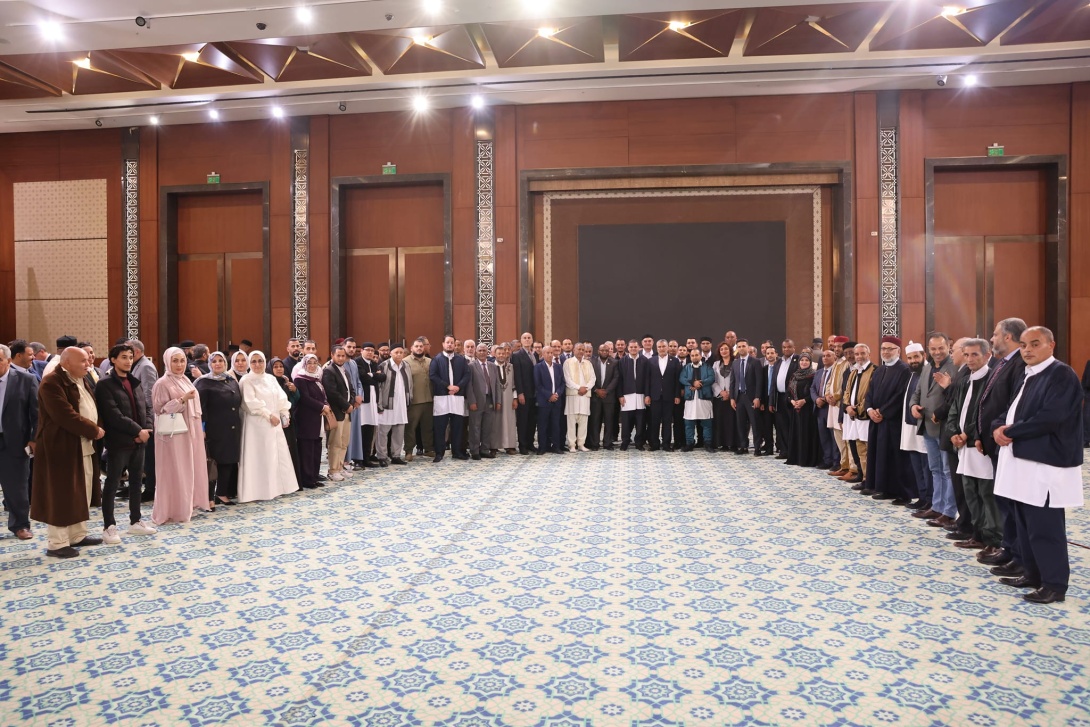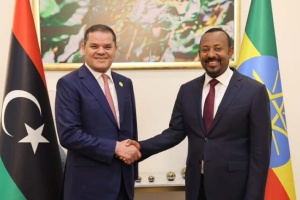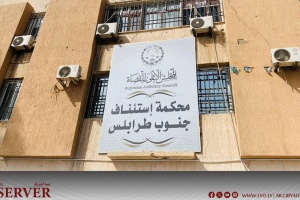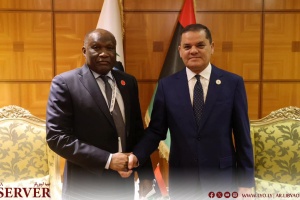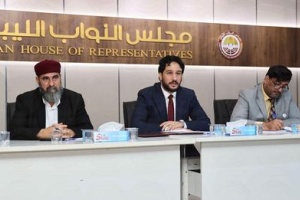The Libyan Prime Minister, Abdul Hamid Dbeibah, stressed his rejection of imposing a tax on the foreign currency exchange rate, warning of the negative effects of the tax on Libyans.
Dbeibah's rejection came during an Iftar table, in the presence of the Head of the High Council of State, Mohammed Takala, a number of members of the House of Representatives and the High Council of State, the Constitution Drafting Assembly, and the heads of political parties, along with a number of political figures, according to a statement issued by the government.
The government's statement said that Dbeibah had refuted the rumors that talked about the deterioration of the state’s economic situation and the state's bankruptcy, showing in numbers and statistics the value of the state’s public spending during the last three years, including the development spending, through which several development projects were implemented in various parts of the country for the first time since February revolution.
It indicated that Dbeibah had disclosed the government’s revenues that were achieved in foreign currency, and what it accomplished in ending the public debt that lingered from the two previous governments, in addition to his government's work to enhance the state’s foreign exchange needs.
Regarding the meeting, Dbeibah said that it came as part of a series of meetings that would take place during the month of Ramadan with a number of elites and actors in society, to discuss various political files in order to reach a solution.
The government's statement pointed out that those who attended the Iftar meeting stressed “the need for ending the transitional stages and moving quickly to the permanent stable period, through fair and transparent elections held in accordance with fair laws, and they reiterated the necessity of putting the draft constitution to a referendum as an appropriate and satisfactory solution for all.

